★★★★
“Parks and Illegal Recreation.”
 For six months or so, our morning routine involved the consumption of an episode of Parks and Recreation with breakfast. Our favourite character on the show was Ron Swanson, but not far behind was April Ludgate, played by Aubrey Plaza. She was the mistress of deadpan misanthropy, delivering lines like “I’m just gonna live under a bridge and ask people riddles before they cross.” We’ve not seen her in much since the show ended, but the concept of April Ludgate, career criminal, was too delicious to pass up. So here we are, yet I must admit, Plaza is almost good enough to make us forget April. Well, except for one roll of the eyes, which was vintage Ludgate.
For six months or so, our morning routine involved the consumption of an episode of Parks and Recreation with breakfast. Our favourite character on the show was Ron Swanson, but not far behind was April Ludgate, played by Aubrey Plaza. She was the mistress of deadpan misanthropy, delivering lines like “I’m just gonna live under a bridge and ask people riddles before they cross.” We’ve not seen her in much since the show ended, but the concept of April Ludgate, career criminal, was too delicious to pass up. So here we are, yet I must admit, Plaza is almost good enough to make us forget April. Well, except for one roll of the eyes, which was vintage Ludgate.
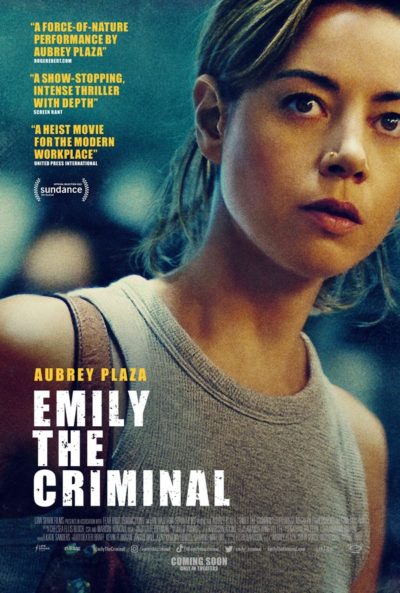 She plays Emily, a young woman saddled with an inescapable pit of student loans, for a basically useless qualification, and an unfortunate felony relegating her to food delivery work. A chance encounter brings her into contact with Youcef (Rossi). She earns $200 for making a fraudulent credit-card transaction on his behalf, and is offered the chance to earn ten times that, for a larger, riskier purchase. With regular employment clearly not the solution, Emily embraces her new, illegal career, working with Youcef, much to the disdain of his Lebanese brothers. As their infighting escalates, Youcef decides to cut and run, only to be beaten to the punch. Emily won’t stand for that: “You’re a bad influence,” says Youcef, as he and Emily prepare to rob his brother. He’s not wrong.
She plays Emily, a young woman saddled with an inescapable pit of student loans, for a basically useless qualification, and an unfortunate felony relegating her to food delivery work. A chance encounter brings her into contact with Youcef (Rossi). She earns $200 for making a fraudulent credit-card transaction on his behalf, and is offered the chance to earn ten times that, for a larger, riskier purchase. With regular employment clearly not the solution, Emily embraces her new, illegal career, working with Youcef, much to the disdain of his Lebanese brothers. As their infighting escalates, Youcef decides to cut and run, only to be beaten to the punch. Emily won’t stand for that: “You’re a bad influence,” says Youcef, as he and Emily prepare to rob his brother. He’s not wrong.
On one level, Emily’s situation is a result of her poor choices. Running up eighty grand in debt for an art degree and committing felonious assault are both decisions she made, of her own free will. These have consequences. Yet I increasingly found myself rooting for Emily, and her refusal to be ground down by the unfairness of life, or those seeking to exploit her – both in the legal and illegal employment sectors. She possesses undeniable smarts, and a righteous anger at the undeserved success of those she sees around her. Her wants are not excessive, and her crimes are… if hardly victimless, non-violent. At least, if you don’t count those who try to take advantage of her. For Emily wields a mean stun-gun.
If the world won’t give Emily a chance, playing by their rules, she’ll simply make up her own rules. She’s not willing to conform just to become society’s victim, and in this, weirdly, it has elements in common with urban flicks like The Bag Girls. There’s also no sense of honour among thieves, though the authorities and police in this movie are notable by their complete absence. Certainly, the threat of arrest is never a consideration for Emily, or at least, doesn’t alter her trajectory. The ending is ambivalent, to put it mildly: crime appears to pay, though it seems Emily may be addicted to the adrenaline high as much as the ill-gotten gains. While the morality here may be questionable, Plaza’s performance still makes it more than worthwhile.
Dir: John Patton Ford
Star: Aubrey Plaza, Theo Rossi, Megalyn Echikunwoke, Gina Gershon





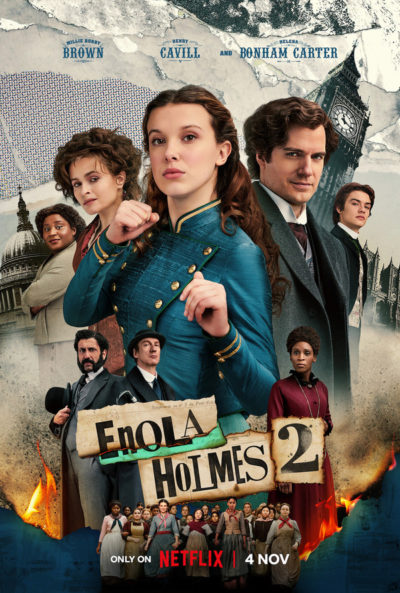 I had forgotten how much I really did not like the
I had forgotten how much I really did not like the  I guess this is, at its heart, about the quest for a treasure map that has been torn into two pieces. Though you could be forgiven for not really noticing, as most of the cast seem to forget about it for the bulk of the running time. The heroine is Shao Wa (Chi), whose father is killed by the Three Rats in their quest for the map. She ends up being punted off a cliff and presumed dead by them. Naturally – it’d be a short movie otherwise – she’s not as dead as they think. She’s rescued by the inevitable kung-fu master and his annoying sidekick, Lee Ta Fa (Hung), who nurse her back to health, and give her the skills necessary to beat the Three Rats.
I guess this is, at its heart, about the quest for a treasure map that has been torn into two pieces. Though you could be forgiven for not really noticing, as most of the cast seem to forget about it for the bulk of the running time. The heroine is Shao Wa (Chi), whose father is killed by the Three Rats in their quest for the map. She ends up being punted off a cliff and presumed dead by them. Naturally – it’d be a short movie otherwise – she’s not as dead as they think. She’s rescued by the inevitable kung-fu master and his annoying sidekick, Lee Ta Fa (Hung), who nurse her back to health, and give her the skills necessary to beat the Three Rats. This is not your normal action heroine film. Nor is it your normal zombie apocalypse film. While it certainly nods in both directions, it seems entirely committed to going in its own direction. My mental jury is still out on whether or not this was a good thing or not. I think if I’d perhaps been prewarned what to expect, I might have been better equipped to handle this. It takes place after the outbreak of a plague, with the dwindling number of survivors now holed up in two cities: Weimar, where infection is an immediate death sentence, and Jena, reported to be trying to research a cure.
This is not your normal action heroine film. Nor is it your normal zombie apocalypse film. While it certainly nods in both directions, it seems entirely committed to going in its own direction. My mental jury is still out on whether or not this was a good thing or not. I think if I’d perhaps been prewarned what to expect, I might have been better equipped to handle this. It takes place after the outbreak of a plague, with the dwindling number of survivors now holed up in two cities: Weimar, where infection is an immediate death sentence, and Jena, reported to be trying to research a cure.  ★★★½
★★★½ Like I said: almost infinite in scope. Apparently, co-writer/director Kwan was diagnosed with ADHD during the creative process: to be frank, it shows. While the imagination on view is admirable, the film bounces about between ideas at a ferocious rate, almost regardless of whether they deserve it. We spend an inordinate amount of time in a multiverse where everyone has long, floppy fingers. Yet there is also buttplug-fu, which is an example of the movie going places you’d never have expected could be so entertaining. Or a lengthy, surprisingly engrossing, scene in which two rocks in an otherwise lifeless multiverse have a conversation in captions. Because why not?
Like I said: almost infinite in scope. Apparently, co-writer/director Kwan was diagnosed with ADHD during the creative process: to be frank, it shows. While the imagination on view is admirable, the film bounces about between ideas at a ferocious rate, almost regardless of whether they deserve it. We spend an inordinate amount of time in a multiverse where everyone has long, floppy fingers. Yet there is also buttplug-fu, which is an example of the movie going places you’d never have expected could be so entertaining. Or a lengthy, surprisingly engrossing, scene in which two rocks in an otherwise lifeless multiverse have a conversation in captions. Because why not?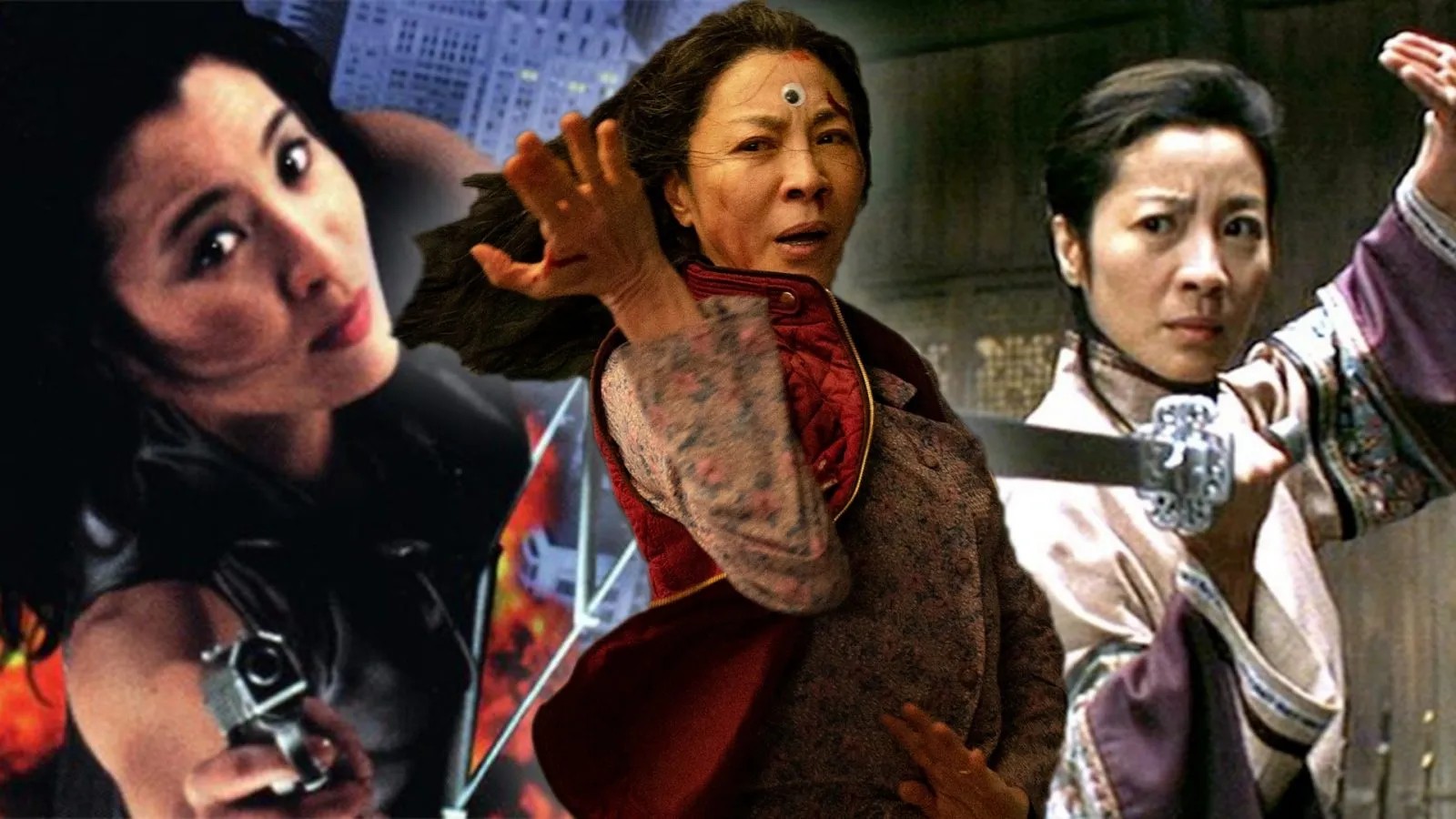
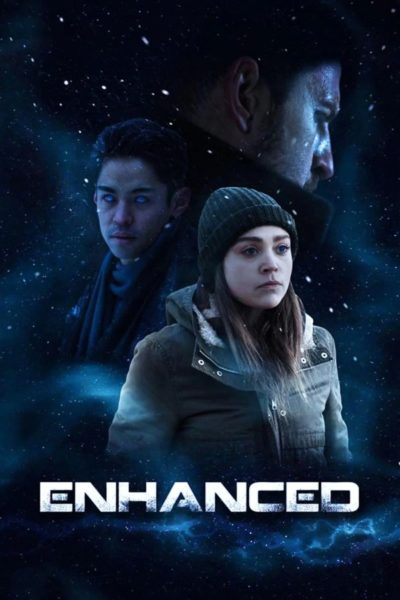
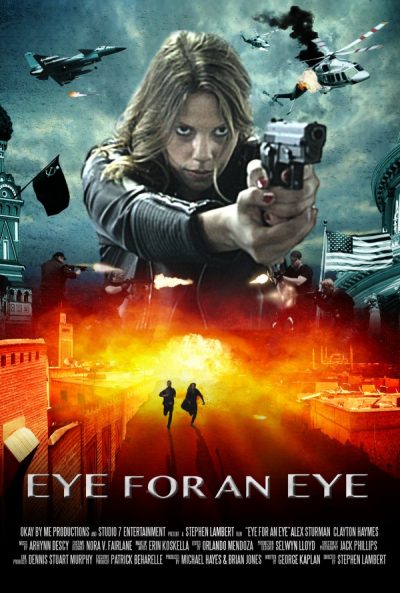 Stacey Anderson (Sturman) is an agent for the CIA. When an operation in Tunis goes bad, she is blamed, and the intelligence which was supposed to have been collected – a complete list of Russian assets – goes missing. Stacey is disavowed by the organization, and dumped out, with a new identity. Five years later, she’s a saleswoman for a PR company, and her boyfriend, Ken (Haymes) has just proposed, when Stacey’s old life comes back to haunt her. An assault on her workplace shows that someone clearly believes she knows more about the list than she admitted. She is forced on the run, with Ken, while she tries to figure out whether it’s the Russians, or a rogue faction within her former employers. Fortunately, this wasn’t entirely a surprise, and Stacey is quite well-prepared. Less expected: having to take her new fiance along with her.
Stacey Anderson (Sturman) is an agent for the CIA. When an operation in Tunis goes bad, she is blamed, and the intelligence which was supposed to have been collected – a complete list of Russian assets – goes missing. Stacey is disavowed by the organization, and dumped out, with a new identity. Five years later, she’s a saleswoman for a PR company, and her boyfriend, Ken (Haymes) has just proposed, when Stacey’s old life comes back to haunt her. An assault on her workplace shows that someone clearly believes she knows more about the list than she admitted. She is forced on the run, with Ken, while she tries to figure out whether it’s the Russians, or a rogue faction within her former employers. Fortunately, this wasn’t entirely a surprise, and Stacey is quite well-prepared. Less expected: having to take her new fiance along with her.
 Complete ranking of Enolas
Complete ranking of Enolas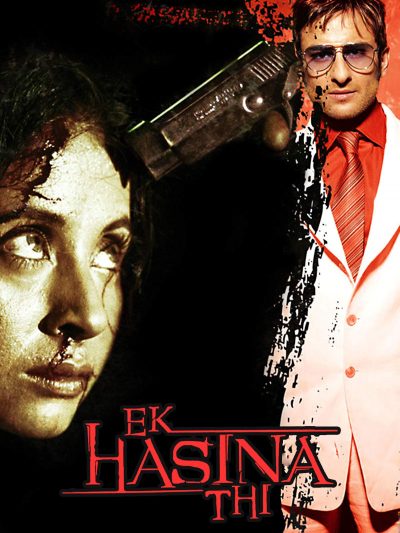 A somewhat cheesy melodrama, this throws together elements from Western pot-boilers Double Jeopardy and If Tomorrow Comes, adds a handful of Bollywood spice, and to be honest, probably overcooks the whole thing a bit. The title translates as “There Was a Beautiful Woman”, presumably referring to the heroine of the piece, travel agent Sarika (Matondkar). Into her office one day comes hunky businessman Karan Singh Rathod (Khan), and after some reluctance, she begins a relationship with him. However, it turns out he is actually a mobster, and manipulates her into taking a fall rather than incriminating him, which nets Sarika a seven-year prison sentence. Escaping from jail, she vows to destroy her former lover, and in turn, works on framing Karan with his criminal pals, by making it look like he murdered a colleague and stole money.
A somewhat cheesy melodrama, this throws together elements from Western pot-boilers Double Jeopardy and If Tomorrow Comes, adds a handful of Bollywood spice, and to be honest, probably overcooks the whole thing a bit. The title translates as “There Was a Beautiful Woman”, presumably referring to the heroine of the piece, travel agent Sarika (Matondkar). Into her office one day comes hunky businessman Karan Singh Rathod (Khan), and after some reluctance, she begins a relationship with him. However, it turns out he is actually a mobster, and manipulates her into taking a fall rather than incriminating him, which nets Sarika a seven-year prison sentence. Escaping from jail, she vows to destroy her former lover, and in turn, works on framing Karan with his criminal pals, by making it look like he murdered a colleague and stole money.